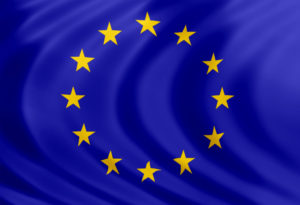Delivering Resource-Efficient Products in Europe
 The European Environment Bureau (EEB), a federation of environmental citizens’ organisations, has released a report on how ecodesign can drive a circular economy in Europe through resource-efficient products.
The European Environment Bureau (EEB), a federation of environmental citizens’ organisations, has released a report on how ecodesign can drive a circular economy in Europe through resource-efficient products.
Drawing from a range of research, the report highlights some of the broader life-cycle and resource implications of products sold in Europe:
- 40% of all the raw materials used in the EU were sourced elsewhere. For some raw material categories like metal ores, the import dependency is over 90% (Eurostat 2014).
- Increasing resource productivity by 2% per year could create two million extra jobs in the EU by 2030 (European Commission 2014).
- Stimulating economic activity in the areas of product development, remanufacturing and refurbishment would provide net material cost savings to EU manufacturing worth up to €410-490 billion per year by 2025 (Ellen MacArthur Foundation 2013).
- Selected electrical and electronic devices placed on the EU market over one year cause the equivalent of 1,500 million tonnes of CO2 emissions over their lifecycle, equal to the entire energy production of the UK, Germany and Poland combined (EEB).
The report highlights three options that can be combined to reduce resource use in products:
- identifying design requirements that support better repairability and durability of products;
- ensuring that selected materials in products are managed carefully from production to end-of-life, including options to use high shares of recycled content and support their high-quality recyclability;
and - removing problematic or hazardous substances undermining the potential for re-using material from products.
Since 2005, design decisions on many energy-using products have been regulated under the EU Ecodesign Directive, with a focus on reducing energy consumption during usage and little emphasis on resource use. The EEB report argues that the relative weight of greenhouse gas emissions embedded in products will grow when looking at a product’s emissions over its life-cycle, resulting in a gradual shift in the attention of policy-makers from the usage phase to the design and production phase of products.
Share
-
Member News, News
Improved Circular Economy and Climate Action in the Land and Primary Industries Sectors
-
Member News, Member Profiles, News
New GlobalPSC Member – Foundation for Ethical Recycling of Industrial Scrap
-
Member News, News
Annual General Meeting and Call for Office-holders and other Executive Committee Positions

